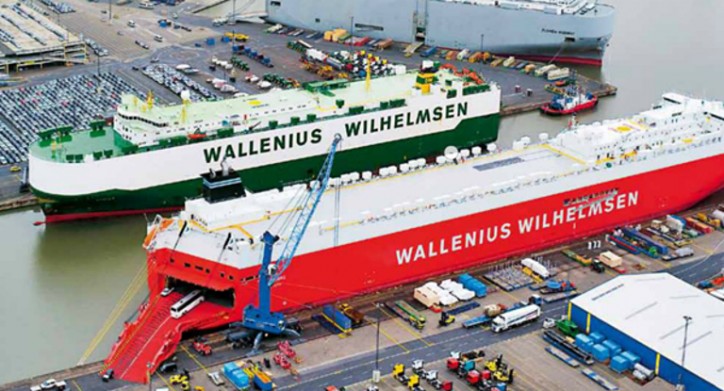Wilh. Wilhelmsen Holding (WWH) reported a decrease in total income and operating profit in the first quarter. Sale of business units, seasonality and restructuring impacted the performance.
WWH delivered a total income of USD 588 million, while the operating profit ended at USD 41 million in the first quarter of 2017. Total income and operating profit were down from the previous quarter, 17% and 52% respectively.
“Reduced ocean transported volumes and a time-lag in bunker compensation had a negative impact on Wilh. Wilhelmsen ASA’s pre-merger revenues and operating profit. The land-based performance continued it’s positive development,” says Thomas Wilhelmsen, group CEO at Wilhelmsen.

The maritime services segment also had a weak first quarter. The total income and operating profit was negatively impacted by the loss of operating revenue from sale of safety business and cost related to M&A activities. However, underlying business had a positive lift towards the end of the quarter.
“The financial returns from group activities are not at a satisfactory level,” says Wilhelmsen. “However, we are implementing structural changes and optimising the organisation to improve operating margin and position the group for future growth.”
Post-quarter, two key events with significant impact on the Wilhelmsen group took place: On 4 April, the Wallenius Wilhelmsen Logisitcs ASA (WWL ASA) merger was completed, and on 27 April, Wilhelmsen signed an agreement to acquire the technical solutions business from Drew Marine.
The annual general meeting held 27 April 2017 approved a dividend of NOK 3.50 per share to be paid on 11 May. The general meeting also authorised the board to declare further dividend of up to NOK 2.50 per share.
A generally soft market for the group’s various activities will continue to affect WWH’s income in the short term. Going forward, the board believes that completion of the WWL ASA merger, reshaping the group’s portfolio and further development of core activities within maritime services will positively affect the group’s potential.
Source: Wilhelmsen